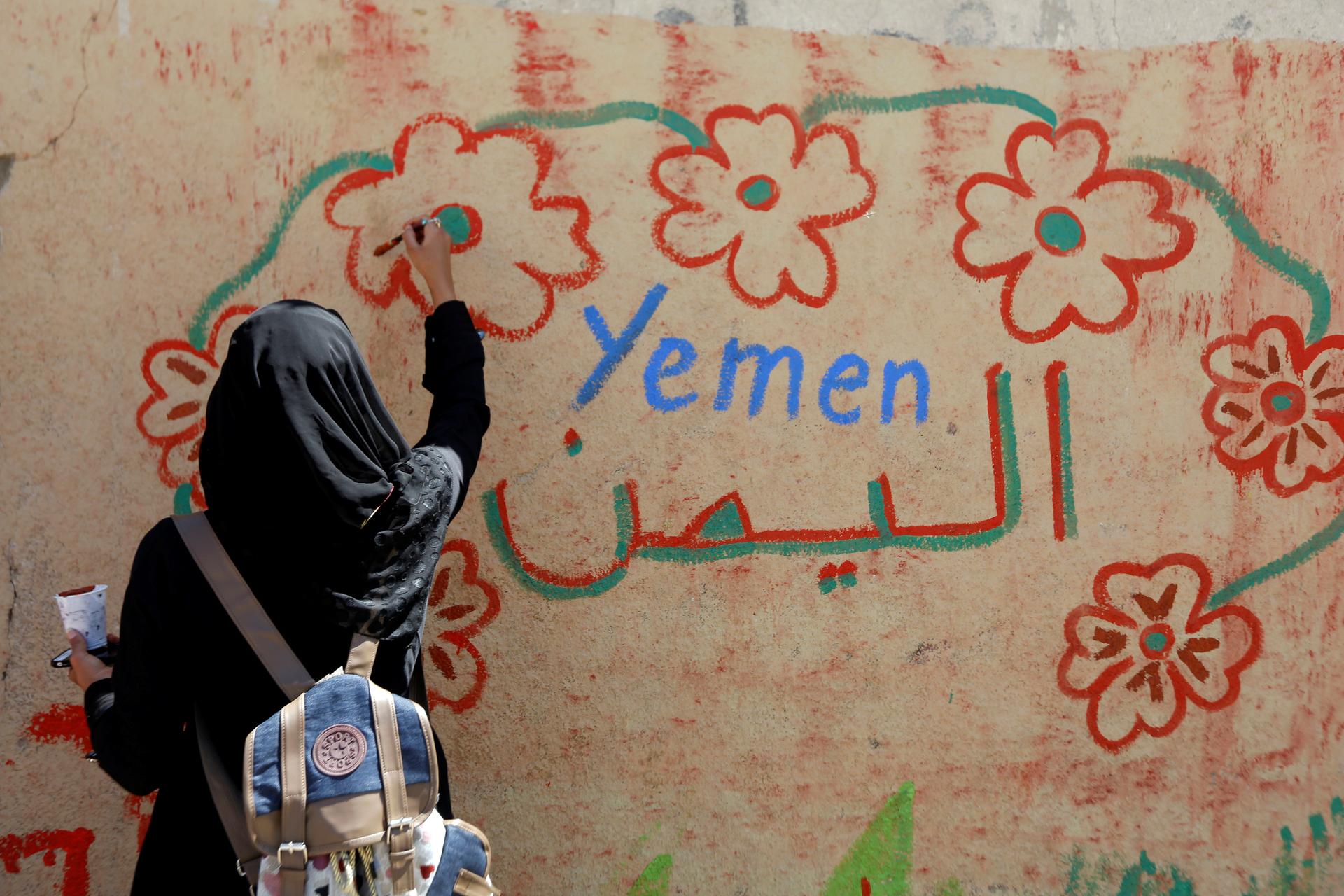A woman takes part in a graffiti painting campaign on a wall in Sanaa, Yemen March 15, 2017.
I took an interest in Yemen some years ago and began following events there for The World, our Boston-based radio show. Because the US has taken on a major role in the Yemen civil war — supplying weapons, logistical and intelligence support to one side in the conflict — I’ve become, from a distance, a conflict journalist.
Yemen’s civil war is now in its third year, and no Yemeni is unaffected. To date, the war has killed 10,000 civilians. It has driven more than 2,000,000 people from their homes. And 17,000,000 Yemenis are now food insecure.
But numbers alone won’t show the war’s impact on daily life in Yemen.
We asked Yemenis with strong English skills to recall one vivid experience from the first two years of the war and to record the story on their phones. I’ve written up some of their accounts here.
But for a more direct experience, click on the audio bars and hear Yemenis tell you their experiences of the war — in their own voices.
Stephen Snyder
Boston
March 26, 2017
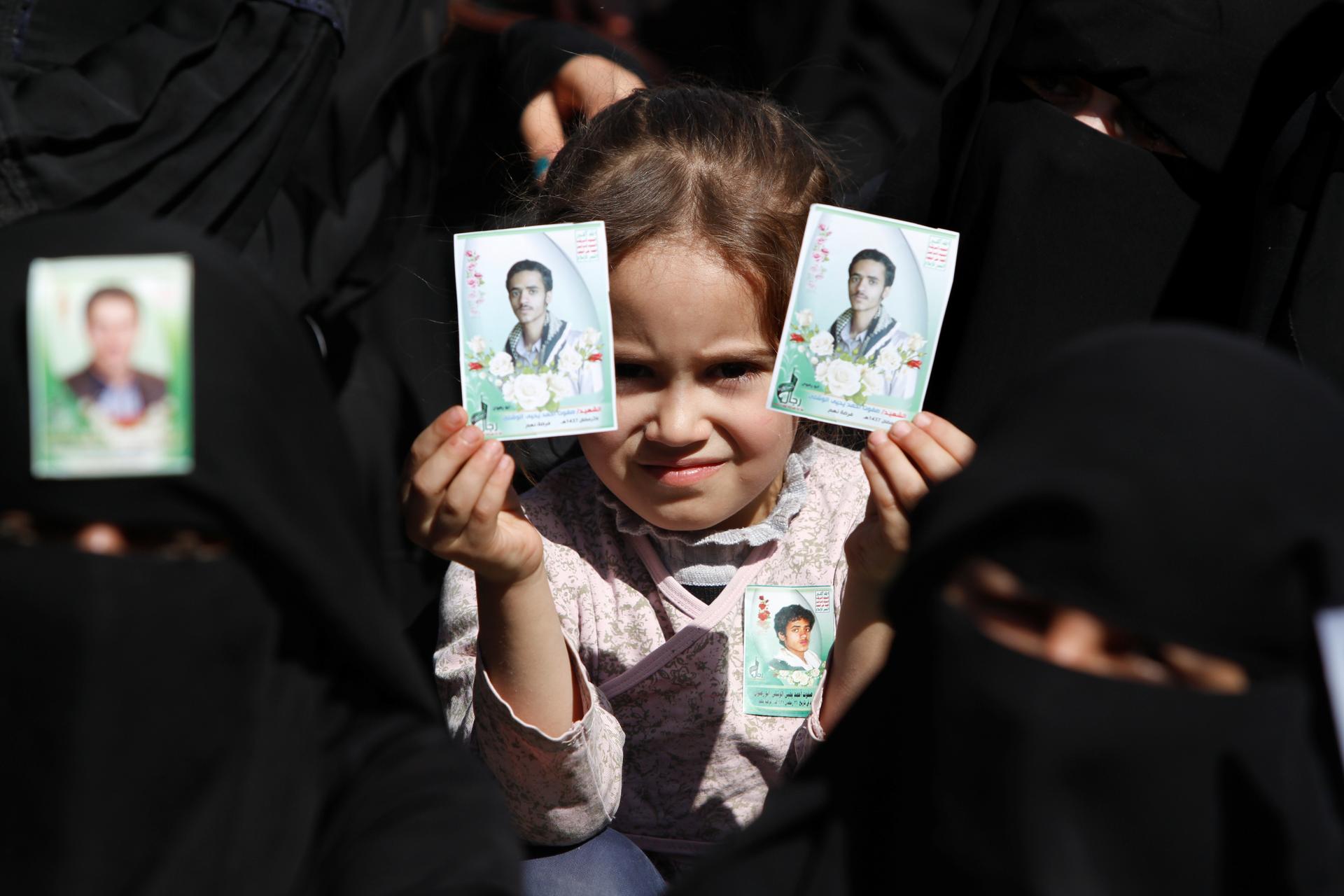
“Yemeni people… should stop acting like this.”
Ami lives in the Yemeni capital, Sanaa. She asked that we not use her real name, because in Yemen, anything you say about the war can have unintended consequences.
“I am married with one child,” she says, “so I’m living the war. Every day, every day you hear a story about someone whose relative was killed in a war, and dead bodies are received every day, at least, in one house of my neighborhood.”
She says neighbors gather at one house or another to grieve and to help with the ritual washing of the dead.
“So I washed, like, five dead bodies,” she remembers, “and families were just crying and encouraging the eldest member of the family to go and fight and [take] revenge … so it was much hate speech.”
Ami has become weary of the partisan politics that now divide people in her city. She knows people who support the exiled government of Yemen, and people who support the Houthi rebels that overthrew the government in 2015. She would like to count them all as her friends, but that is not easy.
Read more: If Yemen’s Houthis weren’t Iranian proxies before, they could be soon
Ami and her husband have agreed that staying neutral in the Yemeni civil war is important for their family. Ami’s brother-in-law was staying neutral as well. But that did not shield him from danger when he went to the besieged city of Taiz to deliver food.
“Someone from the family called my husband,” Ami remembers. Her words begin to come more quickly, agitated. “They were telling him that, ‘Your brother has passed away, he was killed,’ and we were just confused, asking them so many questions, and they kept silent, and then they just told us that we have to go to the hospital to see the dead body. We went there, and we saw him, and we identified the body, and they were telling us, ‘Will you take care of the dead body or should we bury it?” And they want to bury it in groups, I mean like, taking photos of the dead bodies.”
Both sides in the conflict — the Houthi rebels, and the exiled Yemeni government — have been flooding Facebook and Twitter with photos of their war dead, presenting them as martyrs.
“See,” says Ami, “when someone is killed, each one is running to take a photo of the dead body. Assuming that the other party killed that person, and that person belongs to him. So, we took the body and we buried the body by ourselves.”
Ami says Yemen should not have to endure the same kind of sectarian war that divides Syria, Libya and Iraq.
“Yemeni people are different,” she says. “They are kind [and] deep inside, and they should stop acting like this. Politicians should listen to a woman’s voice because their sons, their husbands are being killed, and this is really hard.”
Ami has plans to start a youth education program in Yemen, serving kids from families across the political spectrum. And, she says, she is not waiting for the fighting to end to do it.
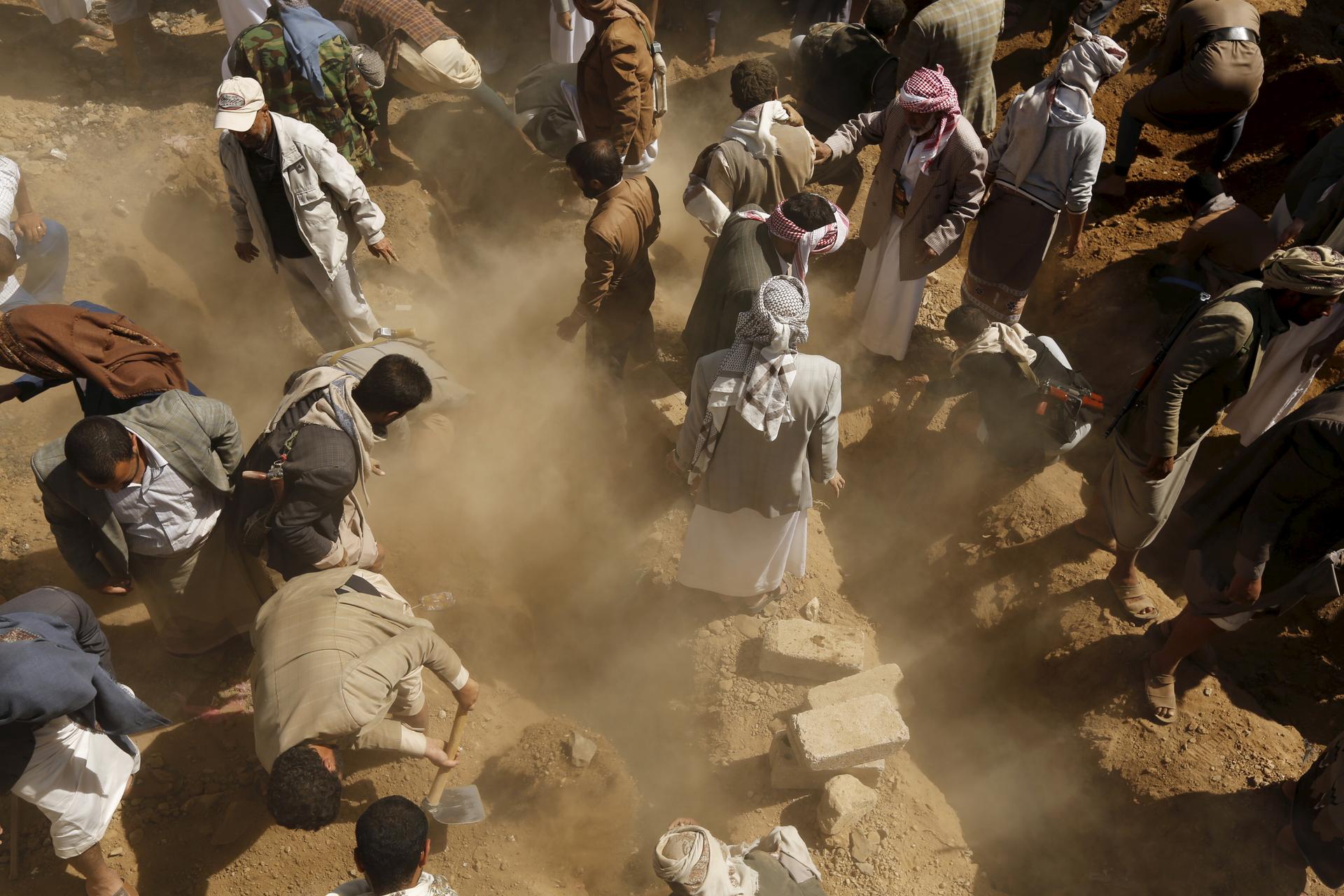
“My son was completely frightened.”
”You know, after the airstrike campaign started in Sanaa, that was really an unforgettable day, I had to move from Sanaa to Taiz.”
Taiz, Yemen’s cultural capital, was not being bombed in March 2015. So Yemeni journalist Mohammed al-Qadhi took his family there.
But Taiz would soon have its own troubles. Houthi rebels encircled the city and blocked every entrance. Local resistance fighters kept the invaders at bay. Taiz residents found their city becoming one of Yemen’s deadliest battlegrounds.
“The war started there in Taiz, and I had to take my kids and my wife down in the basement to be a little bit safer,” Mohammed recalls. “But the situation was completely terrible because of the shells flying over the house and the tanks that were nearby, shelling.”
The noise and the shaking of their building upset Mohammed’s youngest child. “My son, Aziz, he was completely frightened … and he was completely attached to me,” he says, as if reliving the experience. “Wherever I go, even to the toilet, here and there he is attached to me, he doesn’t want to leave me at all, he sleeps next to me and he develops some kind of phobia, that I might depart him, and leave him at that moment.”
FIfty days into the siege of Taiz, Mohammed got the chance to move his family out of the city. But he then returned to Taiz, alone, and remains one of the few journalists covering the fighting there for international media.
He is relieved that his children are living in relative safety, but regrets that he can’t see them. “I miss their company. I miss the company of my wife,” Mohammed says. “I was receiving a call from my daughter today telling me, ‘Dad, when are you coming back?’ My tears are falling down because I am not able to go back to my house.”
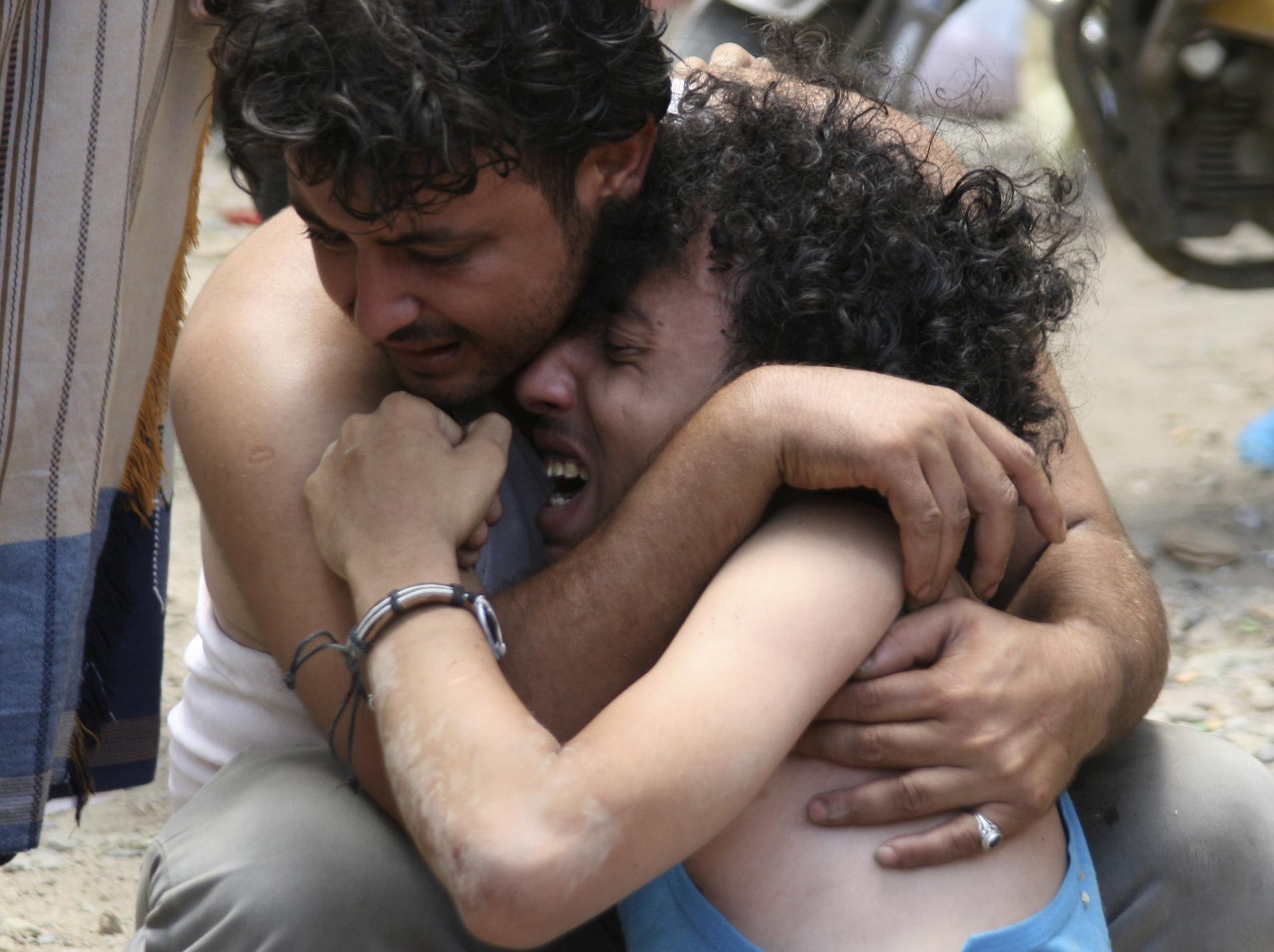
“We started hearing the snipers’ bullets passing right over our heads.”
Suha Almujahed expected it to be hard to enter her besieged city of Taiz. But it was worse than that.
On Jan. 5, 2016, the Al-Dahi crossing was the only entrance into Taiz, and it was heavily guarded by Houthi fighters.
That day Suha and her cousin were returning from Sanaa, and hundreds of people were crowded in front of the checkpoint. “They were holding cooking gas cylinders, small amounts of vegetables and some daily supplies,” she says. The checkpoint was opened for only a few hours a day, and there was no telling when it might be abruptly shut down.
“So, me and my cousin had to ram ourselves between the crowds to reach the checkpoint before they just decide to close it,” Suha remembers. “But when we were near, a Houthi soldier on a pickup [truck] pointed his weapon towards us and threatened [that he would] open fire if we didn’t stand appropriately in a row.”
“We were frozen. We couldn’t move. We were scared, we started hearing the snipers’ bullets passing right over our heads, and everywhere. My cousin dropped her bags. She closed her ears and started crying from fear.”
“I just felt humiliated,” Suha adds. “I was scared and I couldn’t prevent my tears from flowing down.”
Once through the checkpoint, after their luggage was opened and searched in the middle of the street, Suha and her cousin walked quickly as they could into Taiz, she says, scared, shaking and tired. “There was no time to look back … just [to] run before a sniper decides to take away your life.”
One hour after reaching home, Suha remembers, a dead body was delivered to the neighbors. “It was a child,” she says, “who was killed at the crossing just minutes after we passed.”
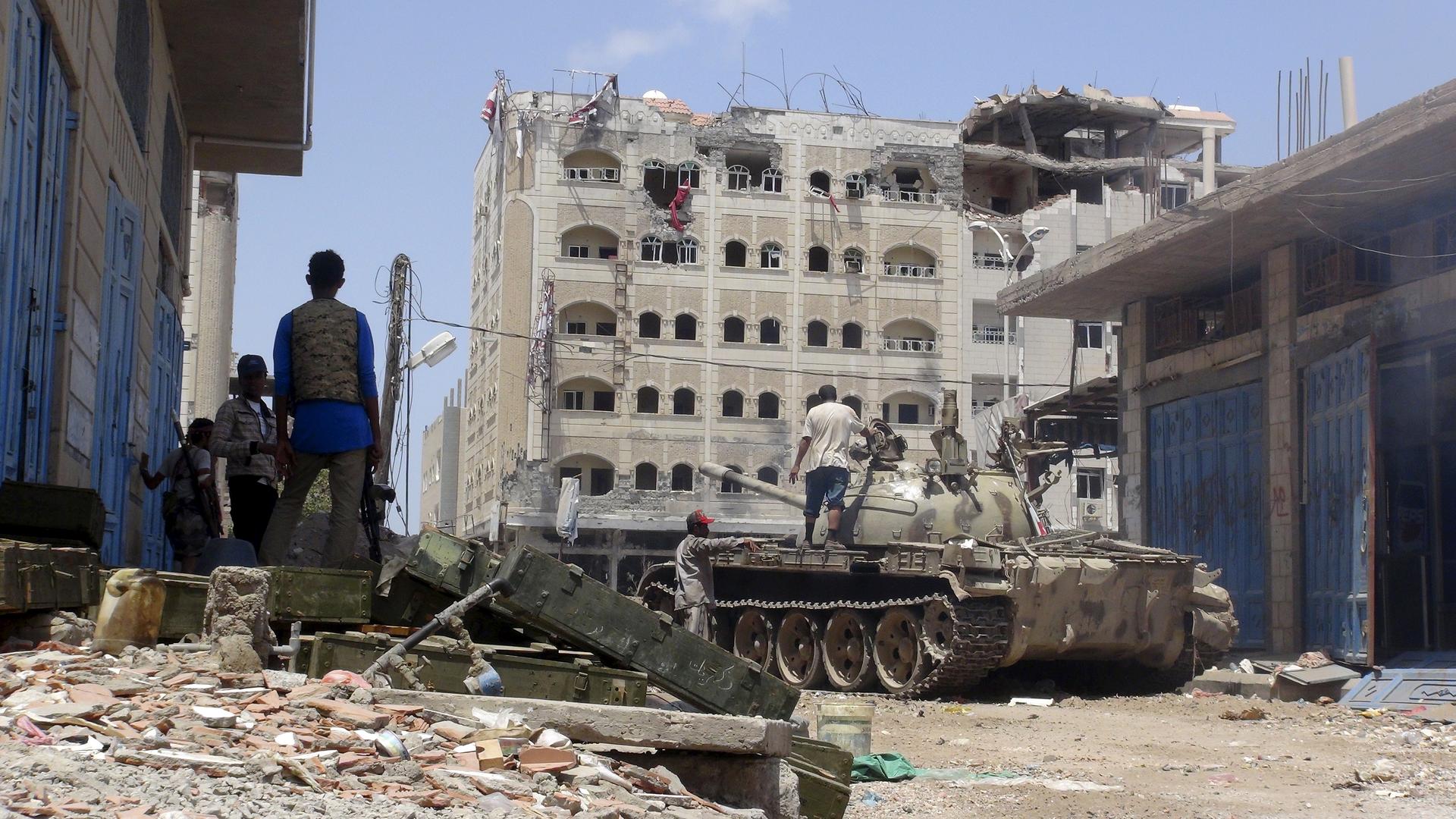
“People outside Yemen do not understand about the south. And they should.”
Nadeem Salmeen lives in Aden, the port city that every ship from the Indian Ocean must pass to reach the Mediterranean. Wars have been fought over this spot through the centuries. In 2015, the Houthis and soldiers loyal to former dictator Ali Abdullah Saleh marched south from Sanaa and tried to seize Aden.
“The first day that Houthi forces entered my neighborhood,” says Nadeem, “women and children were crying and afraid, and the [Houthi] snipers shot at everyone who was moving.”
Pictures from Aden at the time are eerie to look at. “The streets were empty, and some cars were burning,” he remembers, “and no one stopped the fires.”
Nadeem knows that Aden was once the capital of an independent South Arabia. It remains rich in resources and is strategically located to participate in global trade. He is not alone among southerners who want to restore southern independence.
“People outside Yemen do not understand about the south,” he says, “and they should, because the future of our people can not be in the hands of the north.”
The Yemen civil war, to people in Aden, is complicated by this longing for independence, for southern control over its own resources. “Most of the gas and oil fields are in the south, not in the north,” Nadeem says with bitterness, with the foreknowledge that after the civil war is settled, southerners will still have to fight for self-determination and independence.
“Nobody wants to help the Southern Movement,” he says, “because the big oil and gas companies made a contract with Yemen [meaning, the government in the north]. So all this contract will be cancelled if we are separated.”
In 2015, southern independence was less on Nadeem’s mind than basic survival. “When the Houthis attacked Aden, all the young people volunteered for war,” he recalls, “and we went out to the police station, but unfortunately there were no weapons.”
The fight over Aden went on for months, with forces loyal to the exiled president Hadi, local resistance fighters and the Saudi-led coalition battling for turf against the invading Houthis. Nadeem’s neighborhood was on the front line, and he recalls when the Houthis got another foothold there. “I was angry because they did it again,” he says. “So we left Aden, with all our neighbors, and moved to Hadramout, to be safe from the war.” Hadramout, about 435 miles east of Aden, is controlled variously by local tribesmen, al-Qaeda, and the exiled Yemeni government. But, importantly, not by the Houthis.
For now, Nadeem feels gratitude to the forces that saved Aden from the northern invaders. “We will not forget that the Arab alliance helped us in our battle with Houthi[s].”
But he also has his eye on the future, and the promise of southern independence.
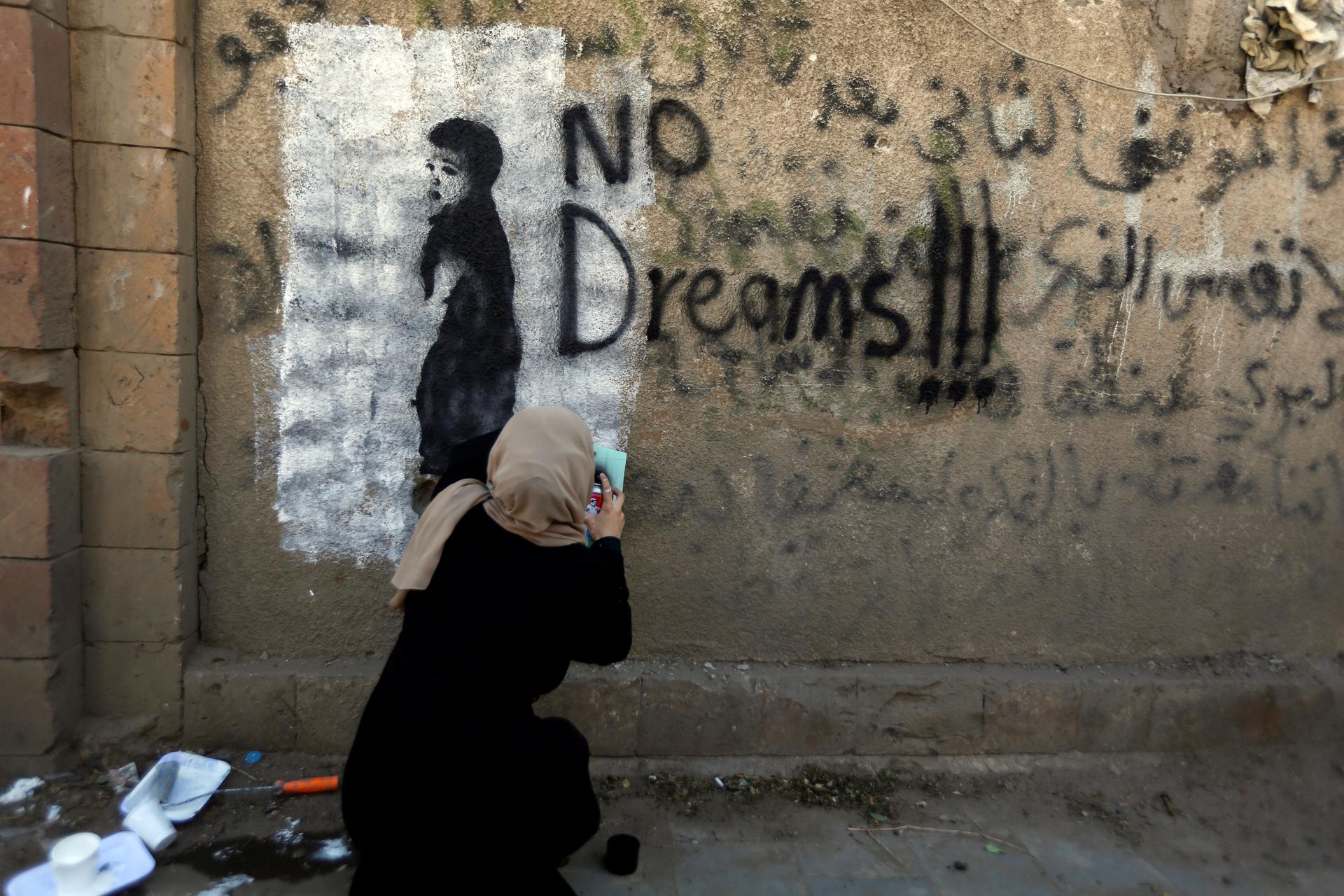
“I feel that I am not going to marry …”
Ahmad was a university student before the war began. He was engaged to be married, and he felt like he had a bright future.
But the past two years have not been good to this young man from Dhamar.
“I have lost six of my best friends,” he says. One of them — his very best friend, Bilal — was killed in a Saudi airstrike that shook all of the capital city, Sanaa.
“I wanted to study abroad, but I couldn’t,” says Ahmad, who not only missed out on a scholarship opportunity, but saw many of his professors drop everything and flee the country.
“If I finish my studying in the college, what am I going to do?” he laments. “There is no job there,” he says, “even employees, themselves, don’t have a salary.” Yemen’s economy was ruined first by the war, and now by partisan tinkering with the nation’s central bank.
“So I cannot feel that my life is going well,” Ahmad says with a deep sigh. “I feel that I am not going to marry, I’m not going to have a job, I’m not going to have a salary, I’m not going to do anything. Just waiting for an airstrike to kill me or to kill my family,” he says. “And I hope that will not happen.”
Correction: An earlier version of this story misspelled the name of Suha Almujahed.
Every day, reporters and producers at The World are hard at work bringing you human-centered news from across the globe. But we can’t do it without you. We need your support to ensure we can continue this work for another year.
Make a gift today, and you’ll help us unlock a matching gift of $67,000!
